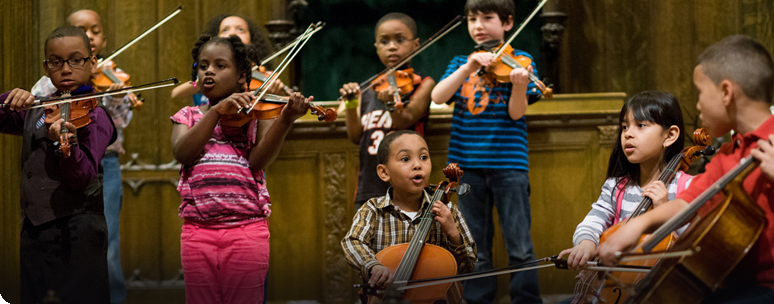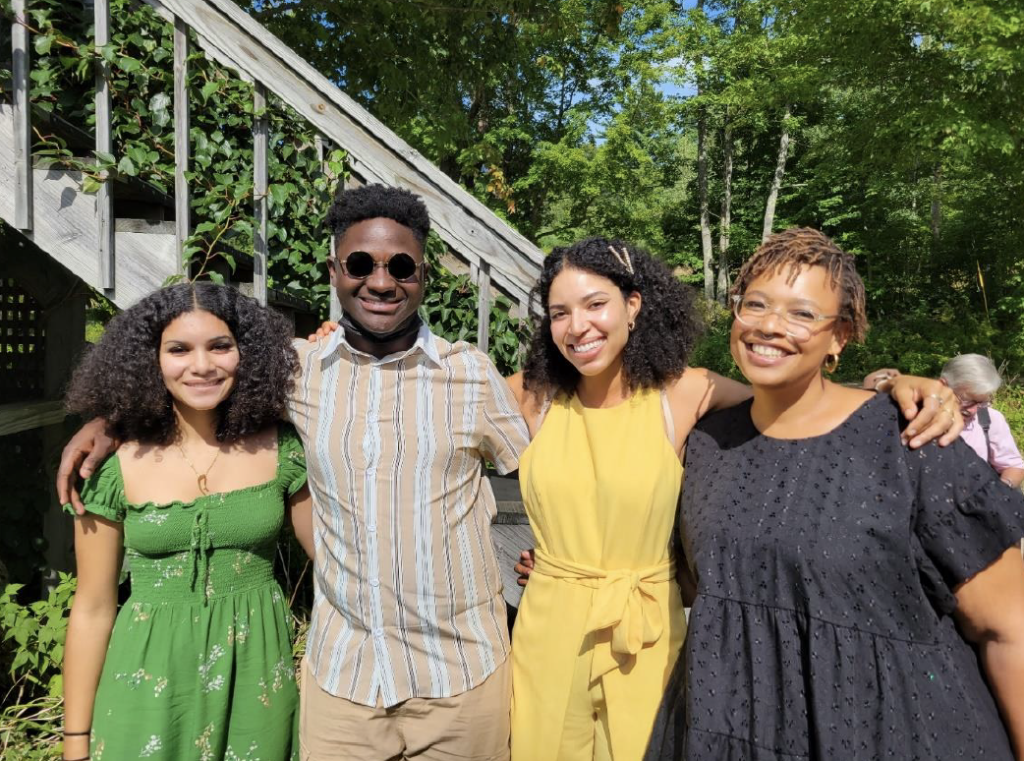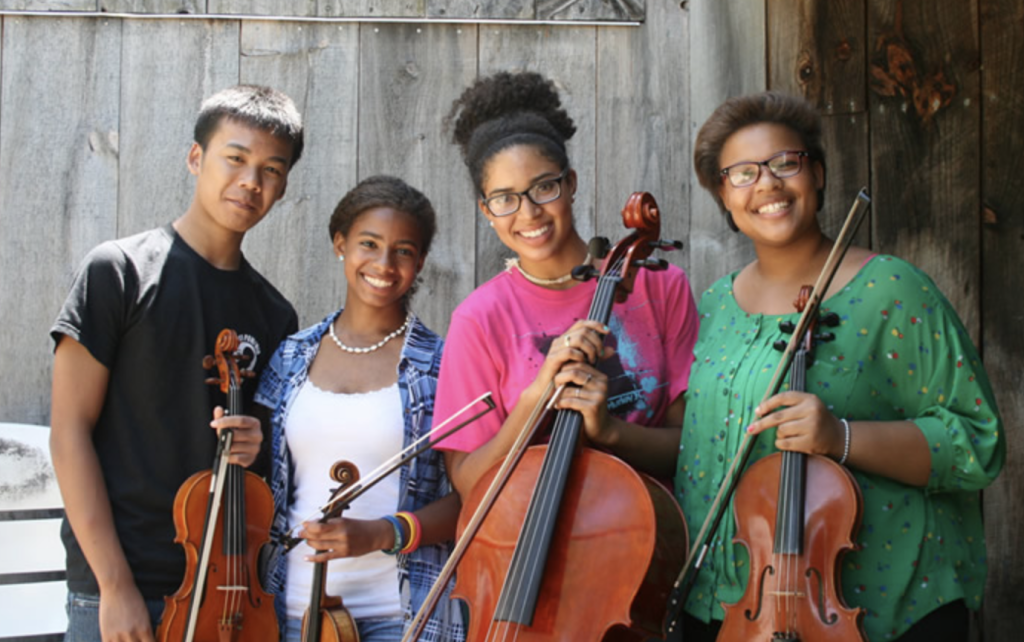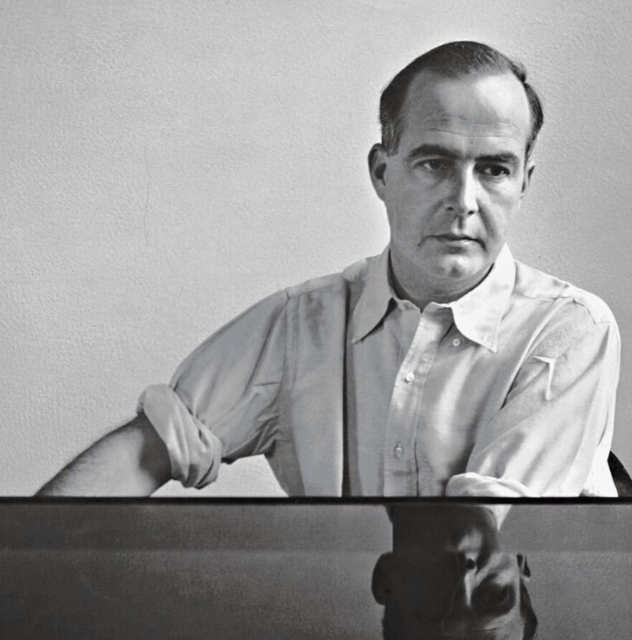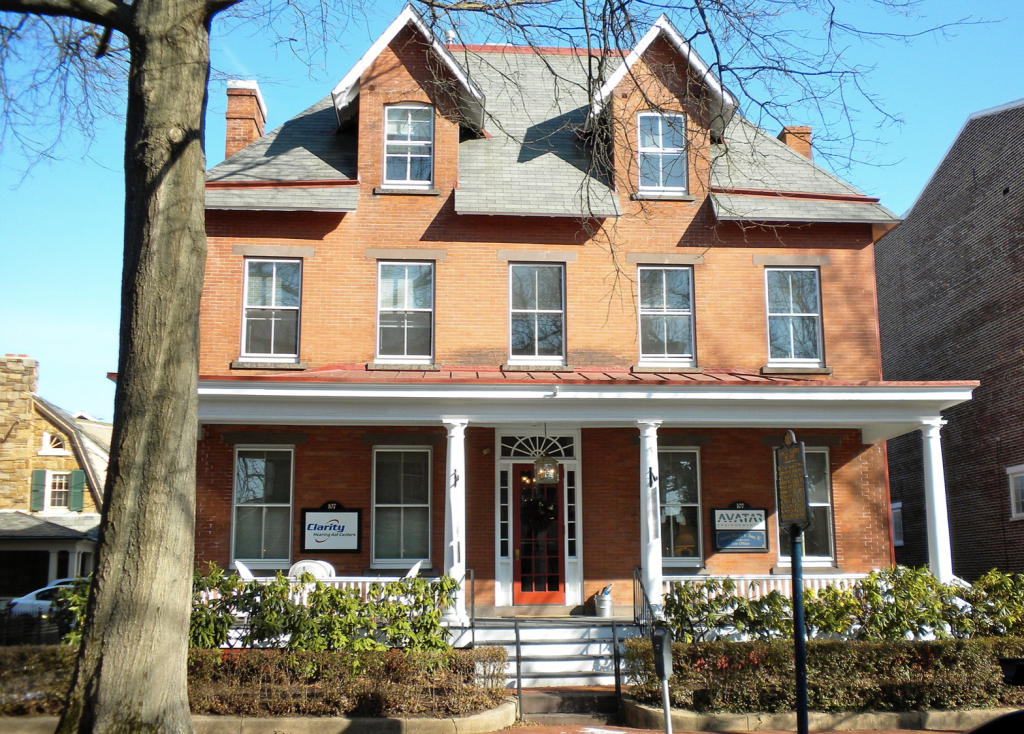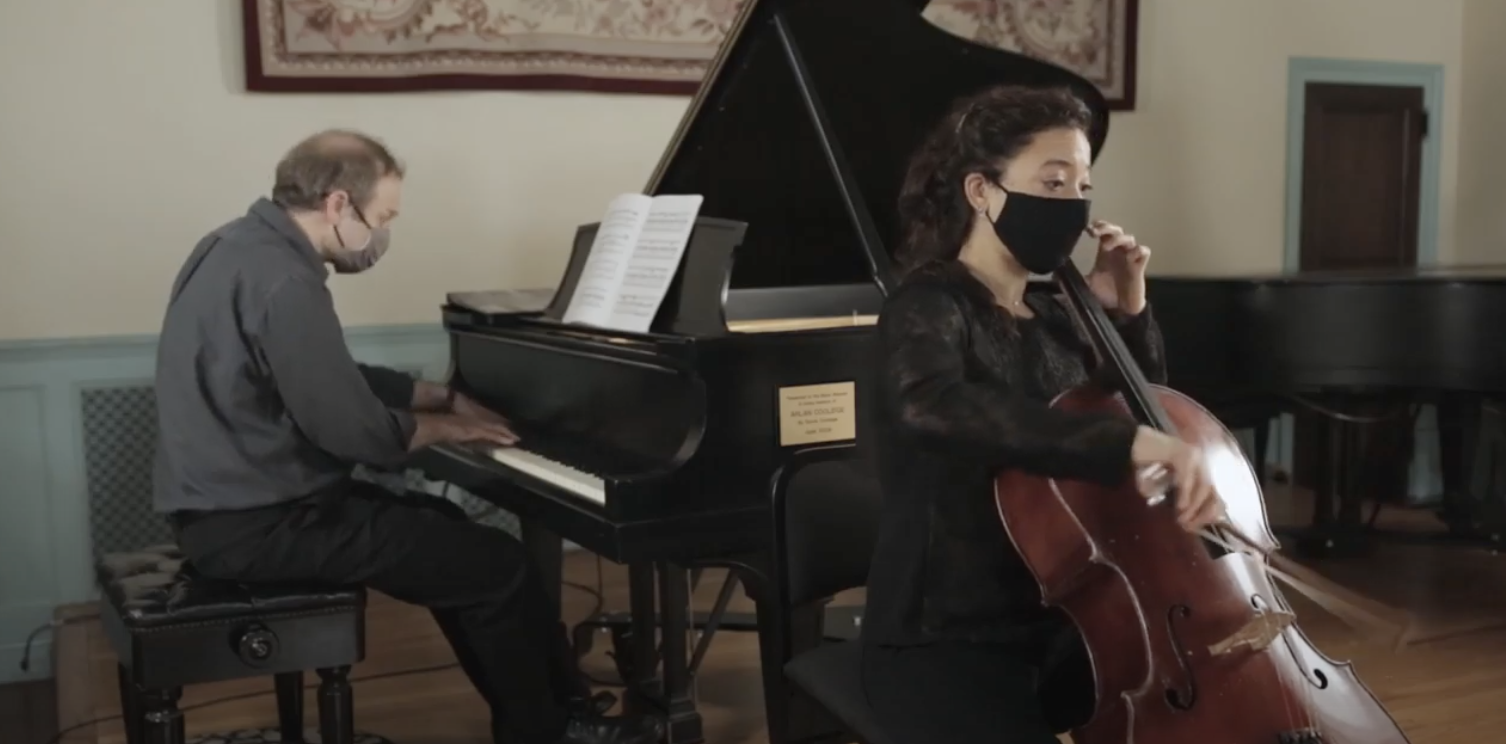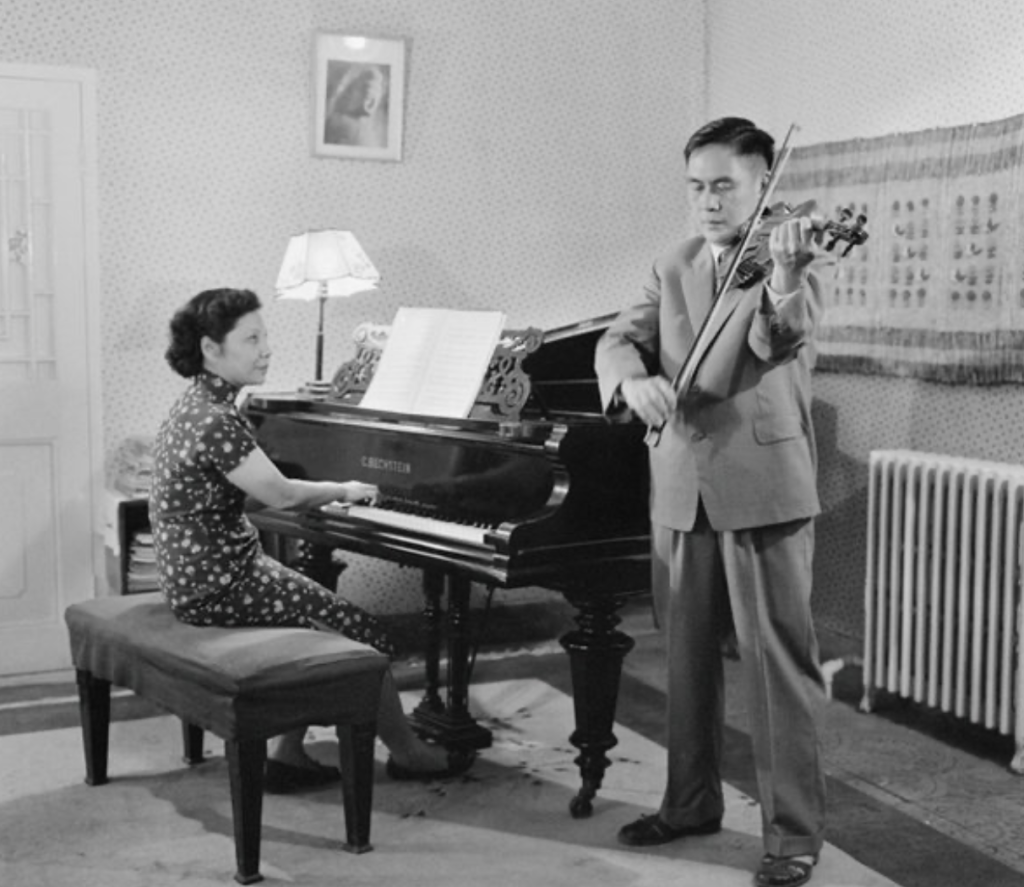
Composer Sicong Ma, violin, with wife, pianist Muli Wang.
Join us for the Sonata Series Event #2, Thursday, February 9 at 7 pm at Bell Street Chapel or through live stream to hear violinist Kimberly Fang perform two pieces by composers Sicong Ma and Yau-Tai Hwang. Here, Kimberly recounts the divergent stories of two composers with early-life similarities, and her search for inspiration during a difficult time.
What I thought would be a very quick phase in my life has now turned into a full-blown obsession: how many pieces of art can I consume or come into contact with that originate from people of Asian or Asian-American descent?
This journey began in the early stages of the pandemic in 2020. At the time, I was feeling trapped, and I had no real way of fighting the racism I was seeing happening around the world. Instead, I searched for a means to make myself stronger on the inside, and what better way to know myself than to learn about what others who look like me have gone through? Reading books by Asian American authors, listening to music by Asian singers and composers, and watching TV shows about the Asian American experience, these things wrapped me up in a sense of security similar to what I felt when I was living in Taiwan. I was relieved to have found a way to cope with the myriad of feelings that bubbled up within me during the past few years.
The main piece that I will be playing for the Sonata Series concert came to me as if by fate. I had merely Googled “Taiwanese classical composers violin” as one would do, and as expected, not many names came up, especially for an English-language search query. I clicked the YouTube link for Violin Sonata No. 3 by Sicong Ma, and it was love at first listen.
Through a very complicated process, I was able to get my hands on the score to this sonata, but at one point, I thought I would not be able to play it because I could not find this in publication anywhere. However, I did eventually get my hands on the score, and as I dove into the details of the composer’s life, I quickly realized the process I went through to get my hands on a physical copy of this music was well worth the struggle.
Ma’s life truly seems like source material for a movie. Born in 1912 in the Guangdong province, Ma had nine brothers and sisters, many of whom also became famous musicians. This was in part due to the fact that his father was a Chinese government employee, and his family could afford things like sending their children off to study abroad. In fact, Ma first traveled to Paris to study violin at age eleven and later became the first student of Chinese descent admitted to the Conservatory of Paris, where he studied violin performance and composition. (Another interesting fact, though not related to Sicong’s musical life: his mother was a scholar, which was rarely seen during this time in China.)
Once he returned to China, Ma enjoyed a successful career as an educator, performer, composer, and even founded and became the dean at many music schools throughout China. He also met his wife, Muli Wang, soon after returning to China. As a pianist, she accompanied him throughout their lives during his concerts. When the Communist party first came to power in 1949, Ma was offered a position as Dean of the Central Conservatory in Beijing. It was said that his salary was nearly as high as Chairman Mao’s, and he had his pick of any fine mansion in Beijing to reside in. The government friend that offered him this position wanted Ma to be at the helm of shaping the future of music in China.
At the start of the Cultural Revolution in 1966 however, Ma’s fortune came crashing down. He was taken to a reeducation camp where he and about 500 other scholars were forced to read government-mandated materials, criticize their past deeds, and expose colleagues and family members who may have also indulged in incorrect ways of thinking. After several months of this, he was carted back to his school where his own students physically and mentally beat him down as he was paraded through the hallways as a traitor to his home country.
In all the years of my life, I had never really thought about persecution happening to artists in this way. I had seen movies about the Cultural Revolution, but for some reason, it didn’t really click for me until I heard about it in this context. I often think about how there aren’t many ways in which I have been challenged to stand up for what I believe in, even in religious or political contexts, and even if I were to meet these kinds of torments in my life, could I be unwavering for the things that I love?
This story has a bittersweet ending. Ma’s wife and children and already fled to Hong Kong when this all started to happen, but his youngest daughter disguised herself and braved the journey to China to convince her father to come back with her to Hong Kong. It seemed that Ma was not easily broken, believing that he could withstand this torture and continue living in his homeland once everything had calmed down. She eventually convinced him to make a run for it, and he and his family were able to make it to Hong Kong and then to Philadelphia, where he would settle down with a low profile for the rest of his life. This came with grave consequences though: once the government learned of his escape, all those that were involved were jailed, and many of the remaining family members in China were jailed or eventually died due to mistreatment.
Sicong Ma’s Violin Sonata No. 3 was composed in 1984, three years before his death. He never forgot about his love for his homeland, where he accomplished so many great things and did so much to champion Western classical music for a new generation of musicians. This sonata is very short, just two movements, but Ma conveys his homesickness for China through it.
Ma would continue to compose and perform in America, Europe, and other Chinese-speaking countries like Taiwan and Hong Kong, but he would never set foot on Chinese soil again. After he was repatriated in 1985, Ma had plans to return in 1987, but died due to complications from surgery and never got to see his home in the end. His ashes were returned to his hometown in 2007.
Although I can’t be sure of all the factors, I think that one reason why it’s been so difficult to find published copies of his music is due to the erasure that he had to endure during the Cultural Revolution. Recently, there has been a small resurgence in playing his music and learning more about his story in China, and he is even hailed as “The King of Violinists” there. It’s hard not to think about what could have happened with his artistic output and life if things had been different.
And in another twist of fate, it seems that we can sort of see what Ma’s life could have been like in an alternate universe through Yau-Tai Hwang’s life, the composer of the second piece I will be playing. I had no knowledge of the composers’ histories when choosing their pieces, but the mirror similarities are uncanny.
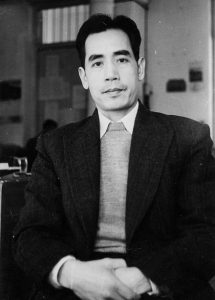
Composer Yau-Tai Hwang (left) was, like Sicong Ma, born in 1912 in the Guangdong province, and had parents that valued his arts education. He was a huge advocate of Western classical music and loved to perform the classics, but found that his audiences preferred to hear his own arrangements of folk songs or pieces he had written that were inspired by his native musical language.
When the Communist party won in 1949, Hwang fled to Hong Kong immediately, where he luckily escaped the persecution of the Cultural Revolution. In 1987, he settled down in Taiwan, where he would continue to teach and compose until the age of 98. Hwang would also draw from his homesickness for inspiration when composing, for he would also never return to China. His life played out very differently due to a few key decisions, and he was able to find a safe haven in the midst of all the war and change happening in China.
The last red string of fate I will add to the mix is this: the only recording that I could find of Ma’s Violin Sonata was played by a musician who had actually heard Sicong Ma in concert as a child. Hsiaomei Ku recalls that she was even able to play for him as a conservatory student. She also suffered through reeducation camp and had her violin locked away during those tumultuous years alongside Ma. I can’t even imagine how it must feel to one day be able to proudly reclaim the music that was composed by someone you looked up to. Perhaps that has undone some of the injustice done to Ma in his lifetime.
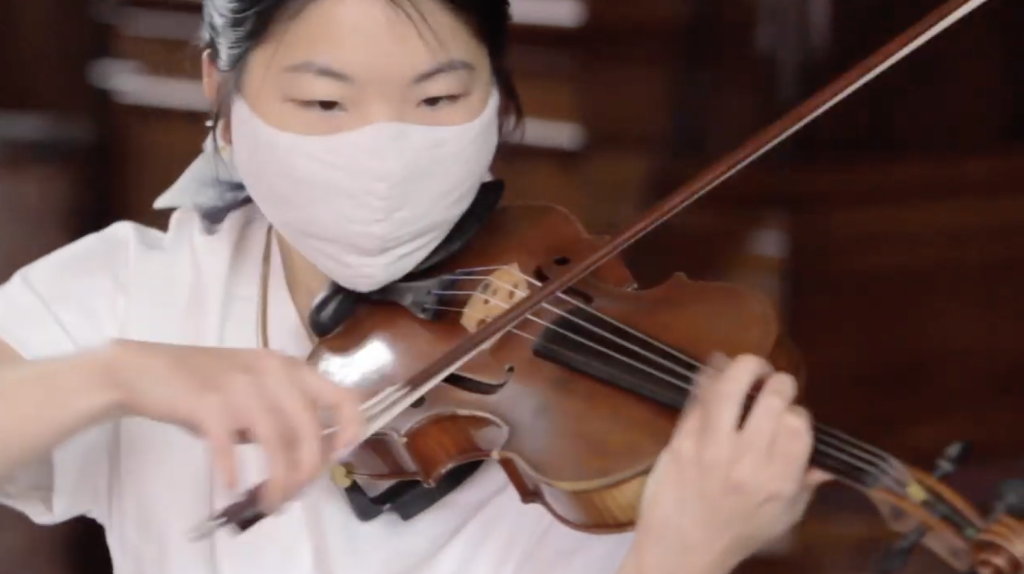
Kimberly Fang performing in 2020.
Maybe grand gestures of defiance won’t come to the majority of us in our lifetime, a blessing for sure. But in the midst of the past couple of years, or even in the midst of this new year in which two Lunar New Year shootings occurred in California, I continue to think about the ways in which I can stand up for what I love. Even as an adult, hearing an elementary student say “ching chong” to my face elicits the exact same feelings of shame and embarrassment that it did for me 25 years ago. And maybe even a little anger that the same old stereotypes continue to be taught to children. I hope that whatever I end up accomplishing with my art, someone in the future who might be just like me won’t have to hear those words ever again.
— Kimberly Fang, violinist
If you are interested in listening to Sicong Ma perform his most famous composition, Nostalgia, with his wife, Muli Wang, click here.
Join us at Bell Street Chapel Thursday, February 9 at 7 pm for the Sonata Series Event #2. Click for more information and reservations, and to join us online for the live stream, click here for the CMW YouTube channel.
